Linseed oil comes from the seed of the flax plant and comes in two different forms, as Raw or Boiled. It is a very traditional finish, used for hundreds of years and still very popular for treating and finishing wood. Linseed oil is used to protect and maintain interior and exterior woods, concrete and is also one of the main ingredients in many paints and varnishes. It is a natural oil so not as bad for the environment as many other solvent based finishes and has a variety of uses from a furniture finish to treating wooden floors.
Table of Contents
Raw Linseed oil
Raw linseed oil is a slower drying oil that usually gives a smoother finish as it allows time to flow out before drying. This results in less application or brush marks once dry. This is why raw linseed is usually used in oil based paints to create a better finish. The only down side is it takes longer to get a solid hard finish on interior wood surfaces like furniture as it takes longer to dry. This is why it is mainly used outside. It is often used on outdoor PE or sporting equipment like cricket bats, baseball bats, rounder’s bats etc. It is also ideal on garden furniture to protect from the weather. The real upside is it is used as a lubricant when doing traditional French polishing, as this helps to aid a smoother flat finish.
Here at Priory Polishes we offer two options.
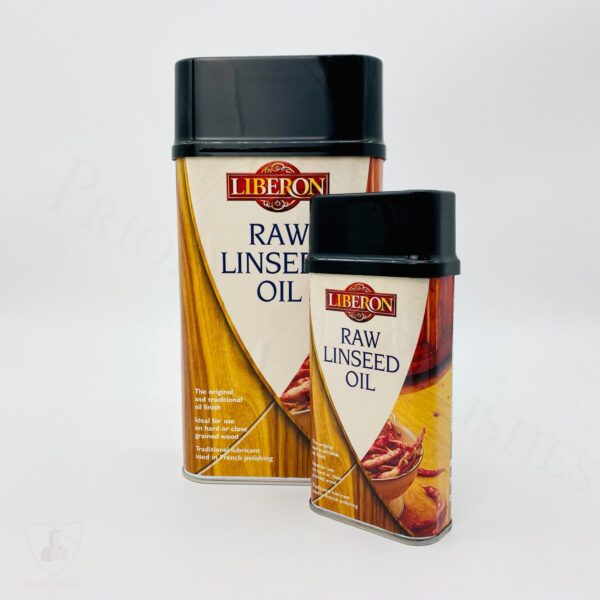
Liberon Raw Linseed Oil is a very traditionally used finish that has been used by the restoration trade for many years. It works not only as a French polish lubricant but also as a finish on exterior woods as it creates a hard-wearing finish that enhances the grain.
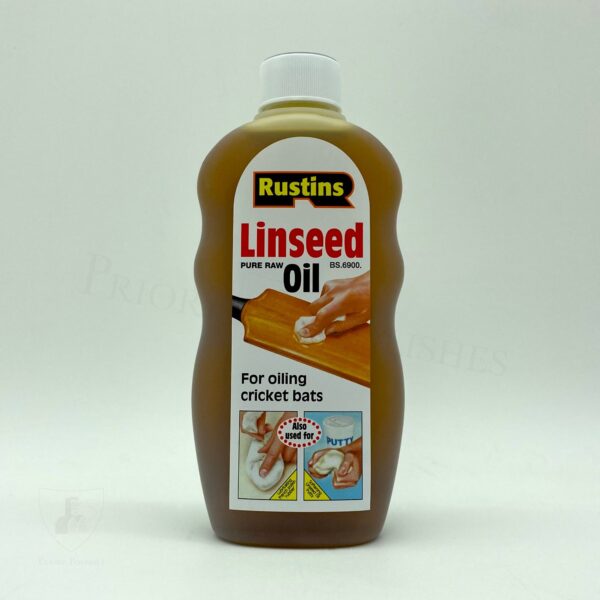
Rustins Raw Linseed Oil offers a natural finish that will nourish wood either indoors or outdoors. This can also be used to soften putty around windows and maintain hardwoods.
Boiled Linseed Oil
Boiled linseed oil offers very similar properties to Raw but is much faster at drying. This makes this oil a far better product for interior woods and furniture. Boiled Linseed Oil has hot air passed through it to improve the drying times. The benefits of this are, it dries much faster so you can start using the wood surface quicker and this also helps reduce the likelihood of getting a tacky finish. Boiled linseed can also be used, not only on bare woods but also as a sealant for terracotta tiles and stone flooring before a finish coat is applied. It is a really useful product that offers very good results.
Here at Priory Polishes we offer two options.
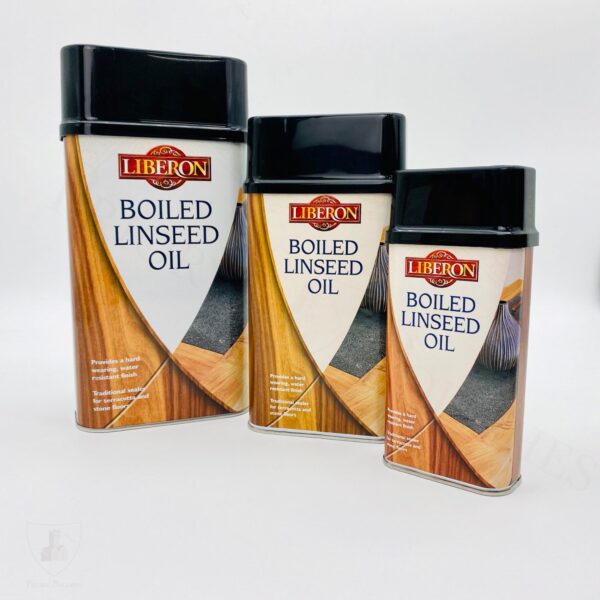
Liberon Boiled Linseed Oil creates a mellow finish and also improves the look of the natural grain. It does work well on newly stripped woods and furniture.
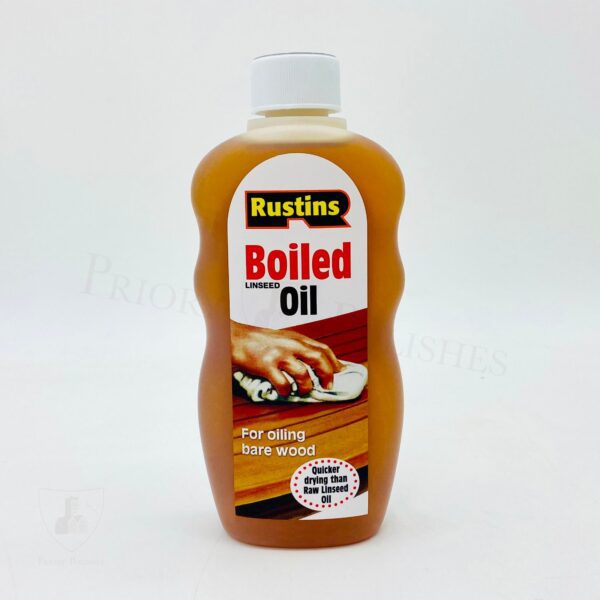
Rustins Boiled Linseed oil is used mainly on untreated interior furniture and wood such as skirting boards and cupboard doors around the home. It creates a natural sheen along with a hard-wearing finish.
What are the benefits of Linseed oil?
There are many benefits of using linseed oil and this is just a few –
- It can be used on wood and metal
- The oil improves the colour of the wood and enhances the grain, making the timber look more textured
- It is in the most part a non toxic finish so is quite eco friendly
- Stops wood from cracking as helps to stop wood from drying out
- It helps to covers some scratches
- The oil soaks deep into the wood to make a good protective barrier to the elements.
- Used as a sealant before waxing wood furniture
- can be used indoors or outdoors
What are the negatives of Linseed oil?
There are only a few minor negatives but here they are –
- It needs to be re coated on a regular basis to keep your timber protected
- It is not water proof but only water resistant
- You need to add several coats to create a hard finish to protect the wood from marking
- It is not as tough of a finish as shellac.
- The oil can create a Yellow tone over time
- It takes longer to dry than many other finishes.

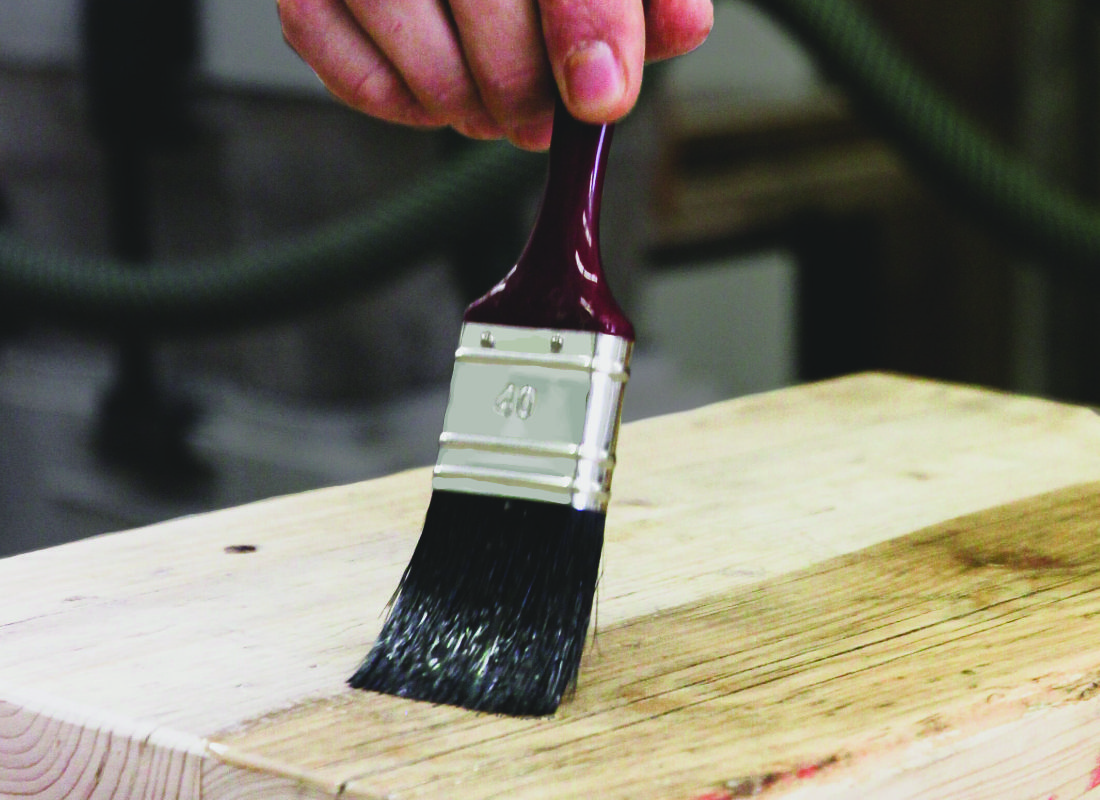
2 Comments. Leave new
ok to apply to speaker cabinet ,
without sanding , just top
of cabinet Wood was cleaned with
alcohol to clean
Hi
Usually it is best to apply to bare wood but this will depend on the type of finish already applied. I would test a very small inconspicuous area first and ensure there is no reaction with your existing finish. I hope this helps
James